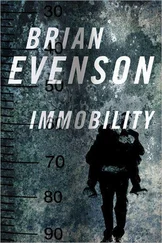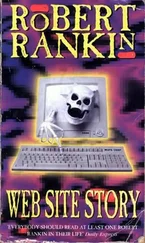“Super!” said Cinchy. “Crackerjack!”
He turned to Kossweiller, who felt his throat go dry and tight as if he were in grade school again. Kossweiller opened his mouth.
“I’ve got a novel,” he said quickly. “One of the best I’ve ever read. Albert West. En Masse. It’s worthy of Faulkner or Joyce. I really think we should go with this one, sir.”
An expression of mild hatred was on Cinchy’s face. “Not sir, “ he said. “Cinchy.”
“Cinchy.”
Cinchy stared at him quietly. “Karsewelder,” he said. “Karsewelder, I thought we had a talk. You should be ashamed.”
Ashamed? Kossweiller wondered.
“What am I going to do with you?” Cinchy asked, half to himself.
H. H., Kossweiller noticed, was raising her hand. Eventually Cinchy noticed as well.
“Yes, H. H.?” he asked.
“Perhaps Koss has a marketing plan, Cinchy? Perhaps it isn’t as hopeless as it looks?”
Cinchy brightened just a little. “That right, Karse? Do you mind if I call you Karse?”
Koss shook his head. “It’s actually—” he started to say, but then, catching Tal Anders’s eye, stopped. “No, sir,” he said. “I mean, no, Cinchy. I don’t mind at all.”
“So let’s hear it,” said Cinchy. “What do you have up your sleeve, Karse?”
“Up my sleeve?”
“What’s your strategy for making En Masse a blockbuster?”
“Change the title for starters,” said H. H.
“So you’d change the title,” said Cinchy to him. “And what else?”
“It’s very good,” said Kossweiller. “It’s really a good book.”
“But who’s your target audience?” said Cinchy.
“My target audience?”
There was a long silence.
“Incoherent marketing strategy,” H. H. finally said. “I can’t work with it, Cinchy.” She turned to him. “I’m sorry, Koss. Don’t take it personally.”
“That’s it, then,” said Cinchy. “You heard her, Karse. It won’t work. No go. Strike one. Two more and you’re out. What else you got?”
“What else?”
“You mean you don’t have anything else?” asked Cinchy, his voice rising. “I thought we had a talk. Did we or did we not have a talk?”
Kossweiller shifted uncomfortably in his chair. “Well,” he said. “There was one other thing.”
Cinchy leered at him. “Something literary?” he said. “It better not be something literary, I swear to God.”
“It isn’t,” said Kossweiller. “Picture this,” he said, trying his best to imitate H. H.’s wipe. “The History of Raggedy Ann. For the coffee table.”
He was prepared to go on. He had for this one at least the rudiments of a marketing strategy. Who doesn’t like dolls? It probably wasn’t the best idea of the day, but certainly it wasn’t the worst. It could go through. Which was why he was surprised, when he looked up, to find Cinchy red-faced and shaking.
“Who put you up to this, Kossweiller?” he asked, apparently forgetting, in his anger, to call him by the wrong name.
“I,” said Koss. “But I—”
“The doll incident,” whispered Anders, from beside him. “Don’t you know about the doll incident?”
“No dolls,” said Cinchy. “Never any dolls. Because of the incident.”
“What was the incident?” asked Koss, but Anders was already interrupting him—”You don’t ask about the incident,” Anders was saying.
“You don’t ask about the incident,” said Cinchy, who seemed to be calming down now. “You just accept it. Ten years of therapy. No dolls. Never any dolls.”
“I didn’t know,” said Koss.
“Dolls are creepy,” said Cinchy. “Horrible things. You’re fired.”
The room was silent. Kossweiller felt stunned. Nobody would meet his eye. He looked at his pad in front of him a moment, then, gathering the pad and pencil, stood up to go.
“Perhaps he really didn’t know,” said H. H.
“I know Koss,” said Anders. “He doesn’t have a malicious bone anywhere in his body. He didn’t mean anything by it, Cinchy.”
“Maybe not,” said Cinchy.
“A boss of the people might give someone a second chance,” said Anders.
Cinchy scrutinized Kossweiller carefully. “All right,” he said. “The boss of the people unfires you. Strike two. You get one more. But I swear to you, Karse, screw this one up, I’ll not only fire you, I’ll make you miserable. Ninety over ninety, I swear to God. And you,” he said, turning and pointing at Anders, “you help him. You make sure he doesn’t waste my time again. I want the two of you in my office in two days with something that nails all three b’s right through the fucking skull.”
•
It was Anders, knocking on his office door as he came in. “Dolls, Koss?” he was saying. “Whose idea was that?”
“I didn’t know about the doll incident,” said Kossweiller. “I swear to God.”
“That was a close one. You should thank God Cinchy’s a boss of the people.”
“It was Bubber. He recommended it to me.”
“Bubber? The agent? He hates Cinchy. Koss, you should know that.”
“I didn’t know that.”
“He and Cinchy worked together at MacMaster & Bates until Cinchy fired him. Don’t you know anything? I’m amazed you’ve managed to survive in this business as long as you have.”
“What was the doll incident?” asked Kossweiller. He opened his center desk drawer, looked in. He closed it, opened a left-hand drawer, kept opening and closing drawers.
“How do I know, Koss? Ten years of therapy, no dolls, never any dolls, that’s all I know. That’s all anyone knows. It’s some deeply Freudian, fucked-up thing.” Anders sat on the edge of Kossweiller’s desk. “It’d probably make a good book,” he said thoughtfully, “and a small-scale indie movie. Maybe Bubber knows. What are you doing?”
“Trying to figure out how long it’ll take me to pack.”
Anders stood up. “Oh no, you don’t,” he said. “You can’t expect the editor of such bestsellers as The Secret Lives of Housewives and Darned but Not Forgotten to let you give up now, can you? You’re an editor, Koss, that’s your so-called métier. Go home and think of something, and we’ll hash it out tomorrow. I have faith in you. Besides, you heard Cinchy: my fate’s wrapped up in your own now. I can’t let you quit.”
“I just can’t do it, Tal. It’s not me.”
“What’s ‘me’ mean? There’s no me to be found in team. Well, actually there is a me in team if you rearrange the letters, but you get my point. Ninety over ninety, Koss. He won’t let you quit. He’ll make your life hell.”
“Ninety over ninety. What does that even mean?”
“If I were you,” said Anders. “I would do every goddamn thing I could not to find out.”
•
Early the next morning, a few minutes after Kossweiller was in, Anders sent an intern by with a note. Coffee in ten, keep the ideas flowing. Eight minutes later, Anders was knocking on his door, tie carefully knotted, looking impeccable.
“Ready, Koss?” he asked. “Thinking blockbuster?”
They took the elevator down to the ground floor, walked out of the building and down the street one building farther, ducked into Sal’s.
“Drinks, gentlemen?” the waiter asked.
“Water,” said Kossweiller.
“Don’t listen to him,” said Anders. “It’s almost ten, Koss,” he said. “Nothing wrong with a drink this late in the day. Gets the creative juices flowing.”
“It’s only twenty-five of nine,” said Kossweiller.
“Right,” said Anders. “Ten if you round up.”
“Coffee, then,” said Kossweiller.
Читать дальше












